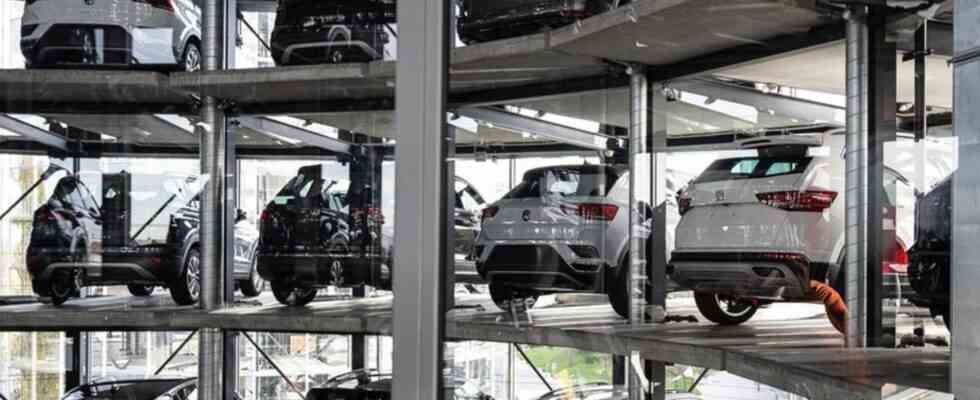Economy
New car registrations in the EU: Historically weak February
The Volkswagen Group, the market leader, was down 11.5 percent and had 176,000 new registrations. Photo: Swen Pförtner/dpa
© dpa-infocom GmbH
Chip shortages and other supply chain issues pushed new car registrations in the EU to an all-time low in February. Experts do not expect any improvement.
New car registrations in the EU continued to fall in February. 719,465 vehicles mean a decrease of 6.7 percent year-on-year, as announced by the industry association Acea.
So few cars have never been sold in February since records began. The reason is the disruptions in the supply chain, for example in the case of semiconductors. Compared to January, when the minus was 6 percent, the decline accelerated – and experts do not expect any improvement for the time being.
“Since the end of February, the situation has gotten even worse. New bottlenecks in important supplier products lead to production downtimes,” said Peter Fuss from the consulting firm EY. “The ability of the car manufacturers to deliver has thus further deteriorated considerably.”
The industry is working flat out to replace missing components and raw materials from previous suppliers in Ukraine and Russia with other sources of supply or to ramp up production at other locations, but that takes time, said Fuß. “For customers, this means that the availability of new cars will continue to deteriorate. The delivery times will be even longer. The prices will probably continue to rise.” At the same time, he sees the risk of subdued demand due to rising inflation, falling real wages and record high fuel prices.
According to Acea, the four most important car markets developed differently in February. While Italy and France had to accept declines of 22.6 and 13 percent respectively, Spain and Germany were able to increase by 6.6 and 3.2 percent.
The manufacturers were also affected differently. The Volkswagen Group, the market leader, was down 11.5 percent and had 176,000 new registrations. It was followed by the Stellantis group – which includes Peugeot, Fiat and Opel – with 151,000 cars and a decline of 19.5 percent. There was little movement at Mercedes-Benz (+1.5 percent) and the BMW Group (-1.5 percent).

